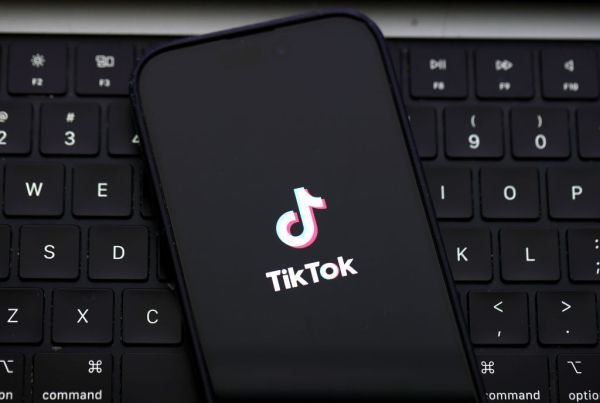A viral online post claims that Donald Trump’s son-in-law, Jared Kushner, took $2 billion from Saudi Arabia and gave the country classified information. “Hunter [Biden] should absolutely go to prison for taking $2 BILLION DOLLARS from Saudi Arabia and giving them classified information, as well as protecting them during their genocide on Yemen,” the Instagram post says. “Oh wait that was Jared Kushner.”
The claim is missing context: Saudi Arabia’s sovereign wealth fund did invest $2 billion with a private equity firm founded by Kushner, but Kushner did not receive the money directly. Additionally, though some members of Congress accused Kushner in 2018 of sharing classified information with Saudi officials, the allegation was never proven.
In 2022, Saudi Arabia’s sovereign wealth fund—known as the Public Investment Fund (PIF)— invested $2 billion in Affinity Partners, a private equity firm founded by Kushner after he departed the Trump administration. According to the Wall Street Journal, Affinity Partners had raised approximately $1 billion for the fund before the PIF made its $2 billion investment. The PIF controls around $925 billion in assets and invests predominantly in Saudi businesses and development projects, though it also commonly deploys capital into international firms and investment funds.
Kushner has faced criticism for the firm’s acceptance of funds from foreign countries, particularly given his former role as a key adviser to Donald Trump on the Middle East. In 2022, a House committee opened an investigation into claims that Kushner leveraged his position in his father-in-law’s administration to land the $2 billion Saudi investment, and in October House Democrats requested that a special counsel be appointed to investigate whether Kushner was acting as an unregistered foreign agent.
The post’s framing—that Kushner personally received $2 billion, possibly in exchange for classified information—however, is misleading. Kushner is likely paid a fee to manage the $2 billion Saudi investment, but the money is not his.
Private equity funds like Affinity Partners are most commonly structured as limited partnerships in which a general partner (GP) is paid to deploy both their own money and funds raised from a group of limited partners (LPs) into private investment opportunities. The general partner—meaning the private equity firm itself—is typically paid both a yearly management fee of about 2 percent of the fund’s total assets and a 20 percent commission—or performance fee—on all of the fund’s profits.
While GPs control the money invested by LPs in their funds—often for lengthy “lock-up periods” during which investments cannot be withdrawn—the money does not become the GP’s property. Rather, each LP retains its own share of the fund and receives a portion of the fund’s profits as investments are exited. When investing in a private equity fund, an LP typically commits a certain amount of capital to the fund’s activities. However, those funds remain in the hands of the LP until the GP draws it down for particular fund costs or investment opportunities, and not all of the capital committed by an LP will necessarily be tapped by the GP. Because private equity funds mostly invest in assets like private businesses that cannot be bought or sold quickly on a public exchange, and because private equity firms often work extensively to improve and grow the businesses in their portfolios, LPs also frequently do not receive profit distributions until several years—and sometimes more than a decade—after making their initial investments.
The claim that Kushner gave Saudi officials classified information has not been substantiated, and first emerged years before Affinity Partners was founded. In 2018, The Intercept reported, citing an unnamed source, that Kushner shared classified information regarding disloyal Saudi royals with Saudi Crown Prince Mohammed bin Salman during a 2017 meeting in Riyadh. Several Democratic officials later published a letter directed to FBI Director Christopher Wray appealing for an investigation into the allegation. Mohammed and Kushner’s lawyer both denied the allegations, and no investigation ever took place.
Claims that Kushner protected Saudi Arabia “during their genocide on Yemen” likely stems from Kushner’s advisory role in facilitating a $100 billion arms sale deal between the U.S. and Saudi Arabia in 2017. In 2015, a Saudi-led coalition intervened in Yemen’s civil war, backing its existing government over Houthi insurgents. The conflict led to a severe humanitarian crisis in the country, which was further exacerbated by naval blockades and a prolonged air campaign by Saudi Arabia and the United Arab Emirates. There is no evidence that Kushner is uniquely responsible for U.S. material and intel support, however: American support for the Saudi intervention began during the Obama administration and continued through the beginning of the Biden administration.
The Dispatch Fact Check has submitted a request to speak to Affinity Partners.
If you have a claim you would like to see us fact check, please send us an email at factcheck@thedispatch.com. If you would like to suggest a correction to this piece or any other Dispatch article, please email corrections@thedispatch.com.










Please note that we at The Dispatch hold ourselves, our work, and our commenters to a higher standard than other places on the internet. We welcome comments that foster genuine debate or discussion—including comments critical of us or our work—but responses that include ad hominem attacks on fellow Dispatch members or are intended to stoke fear and anger may be moderated.
With your membership, you only have the ability to comment on The Morning Dispatch articles. Consider upgrading to join the conversation everywhere.